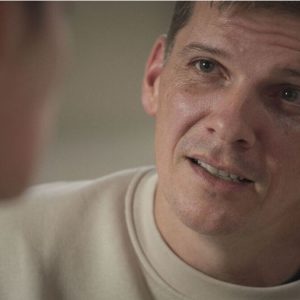In the latest Casualty episode, “Plan B,” Holby ED feels like a warzone—not because of a massive accident or external disaster, but because the team itself is hanging together by threads. With Dylan missing without explanation, Stevie recovering from surgery after the shocking theatre incident, and tensions between colleagues reaching a boiling point, the staff are doing everything they can to keep the department from falling apart. The result is a raw, emotionally charged episode that showcases the fragility—and resilience—of those who work on the frontlines.
This isn’t just an episode about medical emergencies; it’s about internal collapse. But even as relationships fray and trust is tested, there’s a subtle strength that begins to rise from within.
Dylan’s Absence: A Void No One Can Fill
Although Dylan doesn’t appear in this episode, his absence is felt in every corner of the ED. Colleagues whisper about where he might be, and Max struggles to maintain control without one of his key consultants. There’s a growing concern that something is very wrong—and not just in a professional sense.
Max tries to keep things moving without dwelling on Dylan’s absence, but everyone knows they’re missing not only a skilled medic but a calming presence. Dylan has often acted as a bridge between staff, helping cooler heads prevail during conflict. Without him, small issues become flashpoints.
His disappearance is more than a plot point—it’s symbolic of the ED’s unraveling stability.
Stevie’s Recovery: Strength in Vulnerability
Meanwhile, Stevie’s recovery after her emergency surgery is bittersweet. She’s awake, and she’s safe—for now—but her return to the ED is far from certain. Colleagues like Rash, Ngozi, and Rida check in with her, but there’s an unspoken tension: none of them knows what she remembers about what happened in theatre when Russell crossed a professional line while she was unconscious.
Her vulnerability is new, unsettling for those who are used to her being sharp, strong, and sometimes combative. But there’s also something inspiring in how she faces her fragility with grace. Her willingness to let herself be cared for begins to soften the team’s hardened edges.
Even in her hospital bed, Stevie continues to lead—just in a different way.
Rida and Ashok: Personal Conflict Spilling Into Professional Life
The simmering tension between Rida and her father, Ashok, takes a sharper turn in this episode. Ashok’s interference in clinical decisions—and his inability to separate personal pride from professional judgment—puts patients at risk and further isolates his daughter.
Rida, already shaken from what she witnessed in surgery, is now being second-guessed and micromanaged. The emotional toll is visible. She’s caught between her duty to speak up and the complicated emotions of confronting her own father in a space that’s supposed to be safe and professional.
This dynamic pulls at the fabric of the team. As other staff watch the conflict unfold, it becomes a cautionary tale of what happens when personal issues remain unresolved. But rather than causing collapse, it starts prompting reflection across the department.
The Quiet Power of Ngozi and Rash
In contrast to the louder personalities in the ED, Ngozi and Rash serve as stabilizers. Ngozi continues to lead by example, showing compassion to staff who are overwhelmed and holding space for Rida when she begins to unravel. She seems to instinctively understand that healing doesn’t always happen through action—but often through presence.
Rash, while still doubting his place, steps up in a quiet but significant way. He takes control of a high-pressure case, earns Max’s trust, and finally begins to believe in his own authority. His arc in this episode is subtle but deeply satisfying: he’s growing into someone his colleagues can rely on.
Their groundedness offers balance. When others are driven by ego or emotion, Rash and Ngozi are reminders of why they all chose this work in the first place.
Max: Carrying the Weight Alone
At the center of it all is Max Cristie, trying to keep the walls from caving in. He’s trying to protect his staff, support patients, and fill the void left by Dylan and Stevie. But cracks are showing. He looks exhausted, emotionally frayed, and increasingly unsure about the future.
And yet, he keeps going. There’s a nobility in his persistence—a belief that maybe, just maybe, this team can still pull through.
Conclusion: Fragile, Flawed, and Still Fighting
“Plan B” is a study in contrasts: strength and weakness, pride and humility, disconnection and deep care. The team at Holby ED is far from perfect. They’re angry, wounded, confused. But they’re also showing up. They’re still trying.
And that’s what makes them real.
As viewers, we’re left with a sense that while this department is on the edge, it hasn’t fallen—because beneath the fractures, there’s still a foundation built on loyalty, love, and an unshakable drive to do what’s right.





